Genetics
-
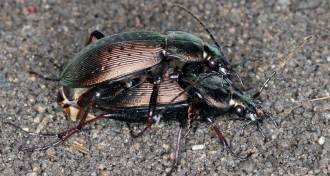 Animals
AnimalsGround beetle genitals have the genetic ability to get strange. They don’t
A new look at the genetics of sex organs finds underpinnings of conflicts over genital size.
By Susan Milius -
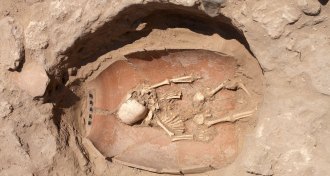 Anthropology
AnthropologyAncient DNA reveals the origins of the Philistines
A mysterious Biblical-era population may have fled Bronze Age calamities.
By Bruce Bower -
 Health & Medicine
Health & MedicineAntioxidants may encourage the spread of lung cancer rather than prevent it
Antioxidants protect lung cancer cells from free radicals, but also spur metastasis, two new studies suggest.
-
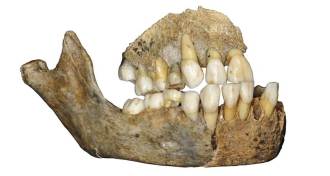 Genetics
GeneticsDNA reveals a European Neandertal lineage that lasted 80,000 years
Ancient DNA from cave fossils in Belgium and Germany shows an unbroken genetic line of the extinct hominids emerged at least 120,000 years ago.
By Bruce Bower -
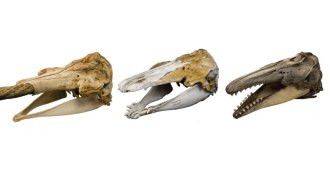 Genetics
GeneticsDNA confirms a weird Greenland whale was a narwhal-beluga hybrid
DNA analysis of a skull indicates that the animal had a narwhal mother and beluga father.
-
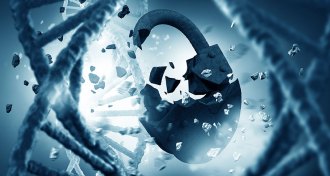 Genetics
GeneticsGenealogy companies could struggle to keep clients’ data from police
Police probably won’t stop searching DNA family trees to find crime suspects. New restrictions on database searches could spur more fights over privacy.
-
 Genetics
GeneticsDNA reveals ancient Siberians who set the stage for the first Americans
A previously unknown population of Ice Age people who traveled across Beringia was discovered in Russia.
By Bruce Bower -
 Genetics
GeneticsAlmost all healthy people harbor patches of mutated cells
Even healthy tissues can build up mutations, some of which have been tied to cancer.
-
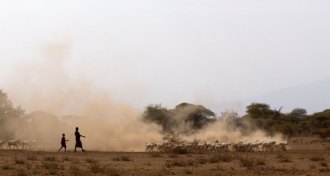 Anthropology
AnthropologyAfrica’s first herders spread pastoralism by mating with foragers
DNA unveils long-ago hookups between early pastoralists and native hunter-gatherers in Africa.
By Bruce Bower -
 Health & Medicine
Health & MedicineA fungus weaponized with a spider toxin can kill malaria mosquitoes
In controlled field experiments in Burkina Faso, a genetically engineered fungus reduced numbers of insecticide-resistant mosquitoes that can carry malaria.
-
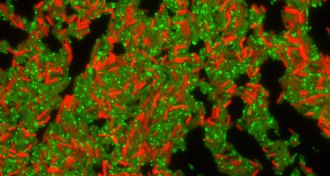 Life
LifeHow bacteria nearly killed by antibiotics can recover — and gain resistance
A pump protein can keep bacteria alive long enough for the microbes to develop antibiotic resistance.
-
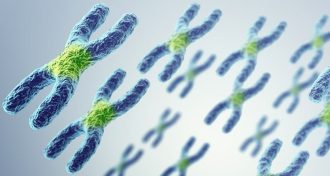 Genetics
GeneticsKey parts of a fruit fly’s genetic makeup have finally been decoded
Jumping genes may make it possible to divvy up chromosomes.